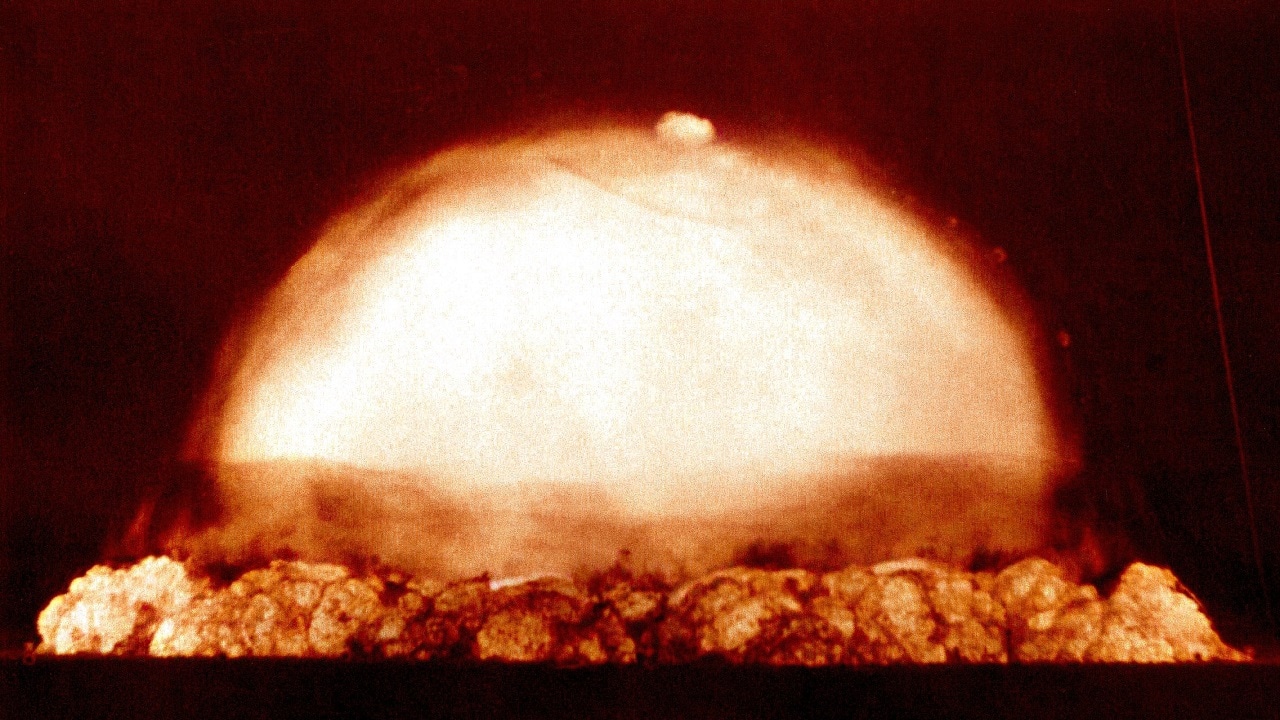Time to Plan for a Nuclear Iran – The Biden administration’s negotiations with the Iranian regime about its increasingly threatening nuclear program are on the verge of collapse. After more than a year of meetings, the Biden administration has failed to repair the shortcomings that prompted President Trump to withdraw from the original nuclear deal negotiated by the Obama administration in 2015.
The Vienna talks about reviving the Joint Comprehensive Plan of Action (aka JCPOA or the Iran nuclear deal) stalled in March, after Russia demanded immunity from Ukraine-related sanctions for billions of dollars it will reap for nuclear work in Iran under the deal.
After the Biden administration conceded on that issue, negotiations broke down over Iran’s demand that the U.S. lift sanctions imposed on Iran’s Revolutionary Guards due to terrorism. This would have rewarded Iran with extra benefits not included in the JCPOA, which only lifted sanctions related to Iran’s nuclear efforts.
It’s not clear when—or whether—the talks will resume.
Equally disturbing, Secretary of State Antony Blinken recently testified to Congress that Iran could finish enriching the uranium needed for a nuclear weapon—aka “breakout time”—in a few weeks if it decided to do so.
That’s deeply troubling.
The “lengthening and strengthening” of the (deeply flawed) Iran nuclear deal that Team Biden promised was firmly rejected by Tehran. That means that a future nuclear crisis with the Iranian regime remains a strong possibility even if another defective agreement is reached, which itself looks increasingly unlikely.
Now is the right time to start looking at what will likely happen if the Iran nuclear negotiations fail outright.
Nuclear Power #10?
Iran has made significant progress on its nuclear program since it began openly violating the JCPOA in 2019. Tehran has exceeded the limits of the nuclear deal in a number of ways, including restrictions on the size of stockpiles of enriched uranium, levels of uranium enrichment, and the use of advanced centrifuges.
These scientific and technical resources and capabilities put Iran on the path to developing and fielding a nuclear weapon.
The failure to reach an agreement that permanently ends Iran’s nuclear aspirations would be a major diplomatic failure. It would also destabilize the Middle East and have major repercussions for U.S. and international security, including Iran becoming a nuclear weapon state—and the trouble that comes with it.
War in the Middle East
Any evidence of Iran moving toward the development and or deployment of a nuclear weapon is expected to provoke a significant reaction in the Middle East due the threat it poses to Israel and the Iran’s Arab neighbors, most notably Saudi Arabia.
It is more than likely that Israel would take military action to prevent Iran from developing a nuclear weapon by striking Iranian nuclear facilities, perhaps in cooperation (e.g., overflight rights) with equally concerned Arab partners.
It should also be expected that Iran wouldn’t simply absorb the Israeli attacks without a violent response. Tehran has the largest missile arsenal in the Middle East, many of which can reach Israel’s major cities.
Iran also has an ally in Syria, which hosts Iranian Islamic Revolutionary Guard Corps bases that could strike Israel. Tehran would also turn to Lebanon’s Hezbollah, Gaza’s Hamas and Palestine Islamic Jihad, and Iranian-controlled Iraqi militias to assist in meting out its revenge on Israel.
The Iranian regime would certainly blame the United States as being complicit in any Israeli or other attack on Iran over its nuclear program, whether it was involved or not. It should be expected that Iran and its proxies would escalate their ongoing attacks on U.S. bases and its interests overseas.
Nuclear Proliferation
Another consequence of Iran developing a nuclear weapon is that other states will face strong pressure to follow in its path. The security dilemma created by a nuclear Iran would spur a regional arms race at the conventional—and possibly nuclear—level.
While Israel is widely believed to be a nuclear weapon state, the prime candidates for a cascade of new nuclear proliferation include regional powers Saudi Arabia, United Arab Emirates, and Turkey.
Beyond the increase in regional tensions derived from an Iranian nuclear breakout, efforts at counterbalancing Iran’s nuclear weapons arsenal would strain global arms control and nonproliferation treaties, regimes, and norms.
When a country becomes a nuclear weapons state, the perception of its clout, leverage, prestige, and even legitimacy are bolstered significantly, usually at the expense of others, especially regional rivals and enemies.
Due to its new nuclear deterrent, Iran would gain a new freedom of action to escalate its provocative policies, including a drive for regional hegemony, anti-U.S. and anti-Israeli policies, and its support of international terrorist organizations.
Considering Iranian aspirations, a nuclear Iran would significantly shift the balance of power in the Middle East, further destabilizing an important region that plays a critical role in supplying the world’s energy.
Unfortunately, the possibility of reaching a peaceful, diplomatic solution to the threats posed by Iran’s nuclear program looks remote at this moment, meaning that the United States, its allies, and partners need to start thinking about dealing with more dangerous times ahead.
Dr. Peter Brookes is The Heritage Foundation’s Senior Research Fellow for Weapons of Mass Destruction and Counter-Proliferation. James Phillips, senior research fellow for Middle Eastern affairs at The Heritage Foundation, has written extensively on regional issues and international terrorism since 1978.

